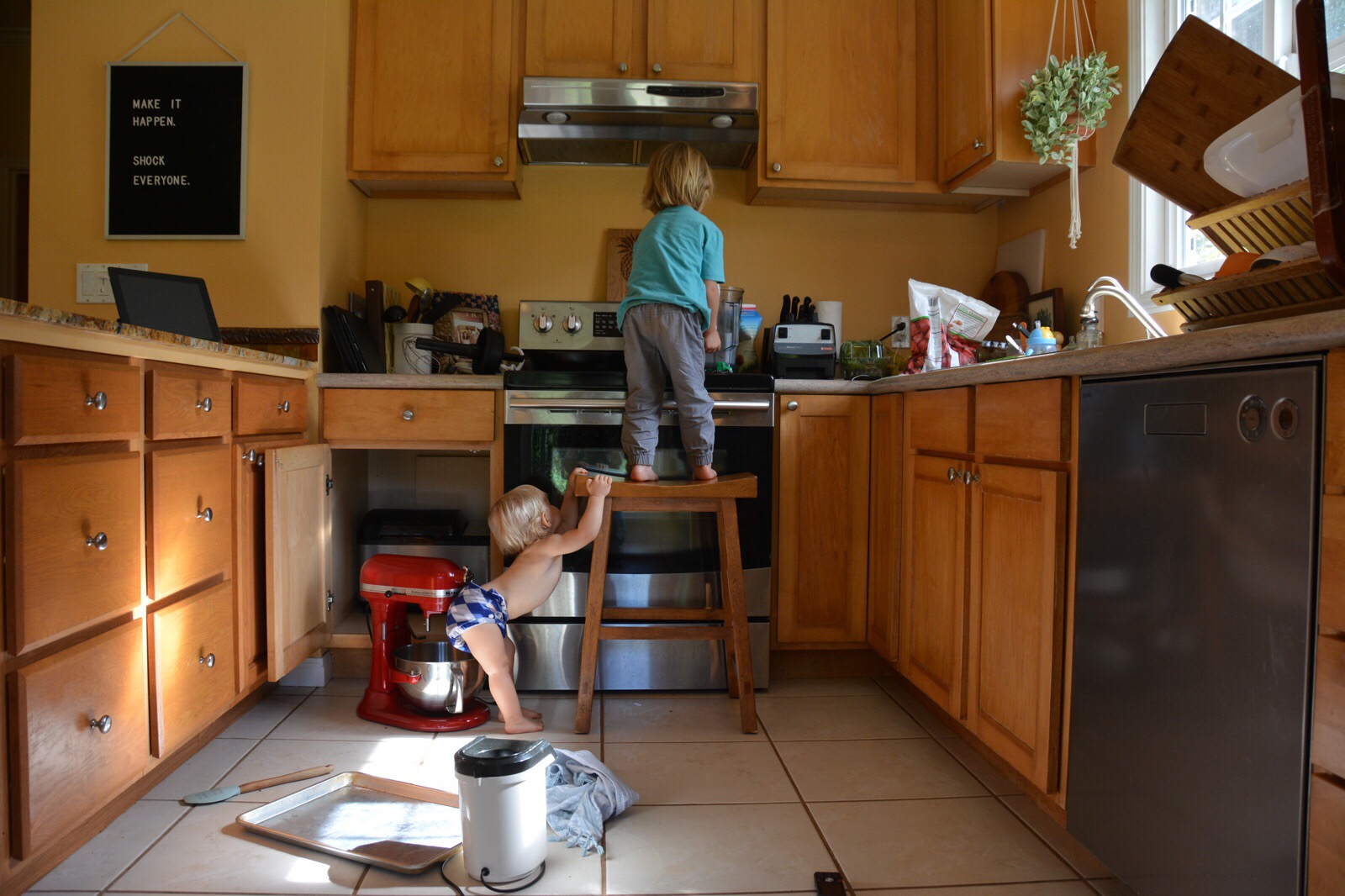My children are spaced a romantically impractical 364 days apart. My son, the older of the two, developed a problem hitting other children when his sister arrived. Time-outs didn’t work, and he didn’t talk until after he turned two, so he couldn’t express his feelings with words. His default reaction to other children was to hit them—especially babies. When it comes to children hitting, it can suck the confidence out of your mothering. It did for me for a year; not only was I juggling two babies, but one of them couldn’t be in polite society. I tried time-outs, teaching him “gentle,” and spending one-on-one time with him apart from his sister. Nothing worked. Eventually, I resigned myself to staying on top of him and sharpening my apologizing skills for when I had to take my eyes off him for five minutes.
One afternoon, my son hit every single child at a party with a group of new friends who were just getting to know us—and whom I wanted to accept us. I departed early, holding back tears, at the end of my rope. Later, on a shelf at home, I spotted a book I had forgotten that my mother-in-law had given me, called Parenting SOS. I thought, “I’ll try anything,” and opened the book. The principle I found there was simple.
Reward good behavior. Do not reward bad behavior.
At first, I thought, “I’m doing that already!” But as I read on, I realized I inadvertently had been “rewarding” my son’s hitting. To him, a time-out was one-on-one time with Mommy, during which my focus was entirely on him—which is what he wanted. I also learned that I unknowingly had treated the times he was obedient as status quo, instead of praising him specifically and immediately.
When my son woke up from his nap, I resolved to intentionally praise the small things he did well. The results were surprisingly and immediately drastic. He complied when I asked him to stop wiggling during a diaper change, so I made sure to smile and thank him enthusiastically. He puffed up in pride. Other interactions that afternoon were warm and connected rather than pejorative. My son began to pursue doing the right thing and his desire to please me melts my heart. A few months in to our new system, he’s teaching his little sister how to “keen up” for mom.
Keep it comin’!
I call him “my helpful big boy” and look into his eyes and say “thank you so much” every time he does something I ask, which noticeably contributes to his self-image. He often points to himself and says, “big boy.” My son needs enthusiastic validation more than feels natural in my adult relationships. However, when I enter his reality, I see that validation can’t be overdone at his age. He won’t be spoiled by sincere and thoughtful compliments. His nascent sense of security and self-worth need consistent reinforcing, and as his mother, I have a privileged role of being one of the main contributors to it.
Words are free and compliments are no extra work or trouble. This small but intentional change has exponentially improved my relationship with my son and his relationship with other children.
Are your children hitting each other? What has worked (or not) for you?










